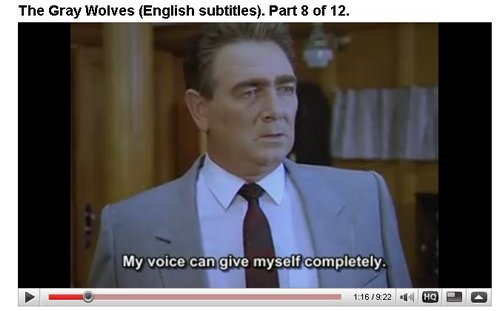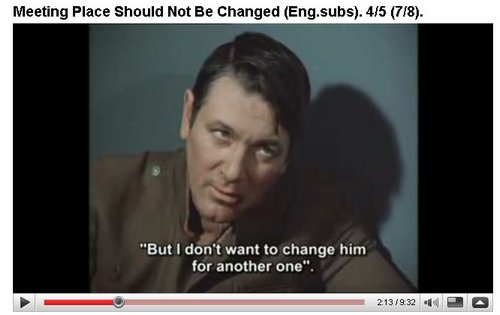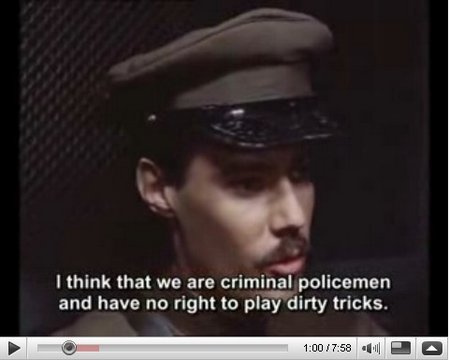The Leonid Ilyich Brezhnev character in Serye Volki, played by Aleksandr Belyavsky, has a distinctive voice. It helps me to follow some of the plot, because in the end a secretly recorded conversation of him is turned over to Khrushchev, and I had no trouble remembering whose voice is on it. In the above scene, he’s referring to something different — the fact that he isn’t capable of being very convincing if he’s the one to call Khrushchev to lure him back to Moscow.
I’m not quite sure what to call his voice — a combination of nasal and raspy? Did the real Brezhnev have a voice like that? I don’t know. I don’t recall ever hearing him speak.
I wondered if the actor put on this voice for the movie, or if it was his own distinctive voice. I went to IMDB to see if I had ever seen Belyavsky before.
It turns out I had, in “Mesto vstrechi izmenit nelzya.” He played the bad guy, Fox. His voice was entirely different there.
It looks like he put on thick eyebrows for the Serye Volki movie, too.
He seems to me a good enough actor, but one thing that wasn’t made clear from the movie was what he brought to the table that made the others want to put him in Khrushchev’s place. Yes, some of the others thought he was only a “transitional” figure, that he would soon be replaced by someone else. But he had to have had some leadership ability, or following, or power position, to make the others push him forward.
It’s difficult for an actor to portray charisma or leadership ability in a movie. Sometimes the point can be made by the way the other actors react to him, and that part is done very well in Serye Volki. It’s done very well in the case of the Mikhail Andreyevich Suslov character — done so well that even though he has only a minor role in the movie I immediately went to Wikipedia to learn more about the real Suslov. But there seemed to be something missing in the Brezhnev character. I won’t rule out the possibility that that’s exactly what was intended.


